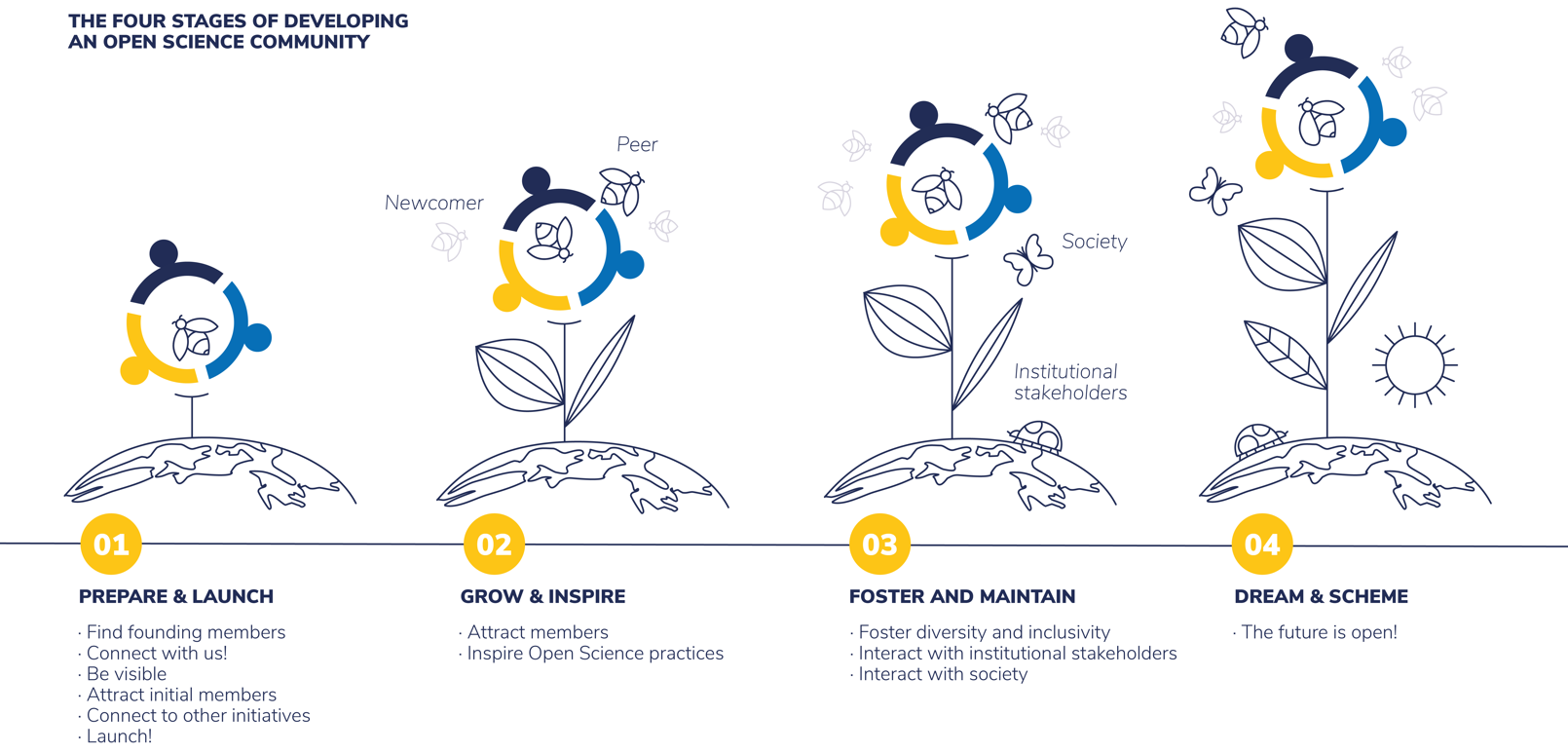[RRI Good Practice] Open Science Community Serbia
What is the good practice about?
Open Science Community of Serbia (OSCS) was established in Nov. 2021 to promote good practices in open science and to facilitate collaboration and exchange of experience among researchers and librarians. This local community is part of a larger network, namely the International Network of Open Science & Scholarship Communities (INOSC, https://osf.io/vz2sy/). The first Open Science Community (OSC) was founded in 2018 at the University of Utrecht, and later this initiative spread around the world.

Why is this initiative needed?
The main motivation of INOSC, as well as OSCS, is to provide a strong basis for knowledge exchange among newcomers and experienced practitioners.
What are the main objectives and activities?
OSCS provides a firm and inspiring foundation for experienced peers to encourage early career researchers to adopt Open Science (OS) practices. Currently (summer 2022), there are more than 100 subscribers to the mailing list (and the number is growing!).
The major advantages over the institutional approach and complementary actions are strongly related to the casual and welcoming atmosphere at the OSCS which encourages early adopters to reach out and learn directly from experienced OS practitioners. All members and subscribers are treated equally, participation comes without any obligation, and background diversity is nurtured at the OSCS.
At the same time, OSCS members organize workshops, surveys, and networking to provide a direct link for beginners to stakeholders and institutions.
OSCS shares objectives and the approach in OS adoption with INOSC. The main objectives are incorporated in the INOSC Guiding Principles (DOI 10.17605/OSF.IO/VZ2SY):
- Open Science/Scholarship Communities (OSCs) are bottom-up platforms supporting researchers in knowledge exchange and knowhow on open science practices
- OSCs are inclusive

OSCs organize, promote, and facilitate open science/scholarship events to
- learn about and discuss open science/scholarship practices,
- share open science/scholarship knowledge, and
- build professional networks.
Events are open to both members and non-members, and are free of charge, if possible (in OSCS this provision is altered: events are always and solely open and free of charge).
Attendees and organizers of events organized by OSCs should adhere to the Code of Conduct. OSCs promote critical discussions of the pros and cons of open science/scholarship practices. They refrain from being normative or condescending and do not tell others what to do. Respect for each other’s workflows and decisions in this regard is critical.
Who is involved?
Researchers are the target audience of OSCs, but students, research support staff, and others that are interested in (conducting) research are also welcome to join the community. No prior knowledge is required to be part of the community, nor are members in any way required to commit to certain open science/scholarship practices.
Open Access Facilitators and Champions are the key actors in OSCS. They already have rich OS experience and they regularly practice OS. Both researchers and librarians are equally represented and involved in OSCS activities.
The founders of OSCS have a very close collaboration with the members of the team for OS in Serbia, established by the Ministry of Education, Science, and Technological Development of the Republic of Serbia.
Moreover, already established local contacts with institutions and formal groups make a solid basis for further growth.
The group of OS ‘pioneers’ that developed and nurtured required OS skills and experience through, among others, an international network, decided to volunteer their time to boost the readiness for the promotion of recognized good practices in the Republic of Serbia. The crucial impulses were direct contact with INOSC representatives and their OSC engagement, as well as altruism to raise the level of OS awareness and expertise in local institutions.
All OSCS members and founders devote their time, knowledge, and resources voluntarily. Membership to OSCS and participation at events is and will be free of charge.
Can this good practice be replicated?
The founders of OSCS have offered to the other countries in Southeast Europe support in establishing similar communities. Currently, the mailing list already includes collaborators from Western Balkan countries, such as North Macedonia and Bosnia and Herzegovina. Serbia acts as an inspiration to start OSC activities in other countries.
OSCS has already been promoted through INOSC, but also by the regional NI4OS-Europe project, where OSCS was promoted as a model for informal bottom-up support to formal national OS initiatives.
As OSCS aims to reach out to all open science newcomers in Serbia, the website and associated resources are available in the Serbian language.
Further links:
Project owner: Community Building for Open Science, Nadica Miljković - contact can be established
Relevant RRI keys: Open Access, Open Science, Open Data
Type of practice: Publications/promotional material, Organisation of training, webinars, Organisation of conferences, panels, round-tables, Peer learning/mentoring
Target groups: researchers (starting from PhD-candidates, on the individual level), universities, research performing organisations, students (up to Master level)
- Serbia
- Agricultural Sciences
- Cross-thematic/Interdisciplinary
- Engineering and Technology
- General
- Humanities
- Medical and Health Sciences
- Natural Sciences
- Social Sciences
Entry created by Elke Dall on July 9, 2022
Modified on July 11, 2022


